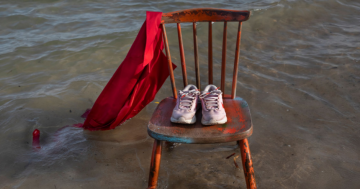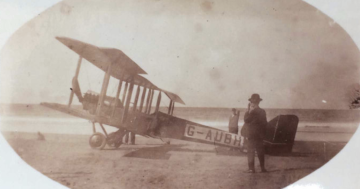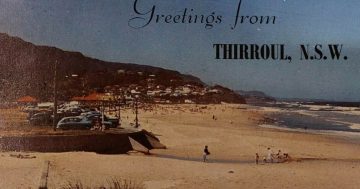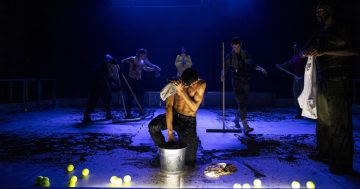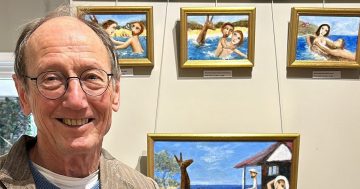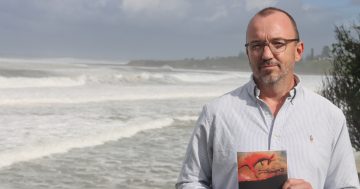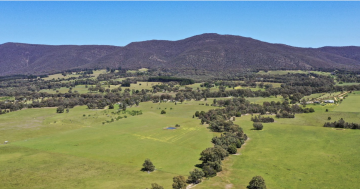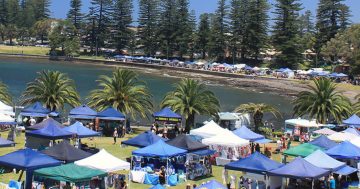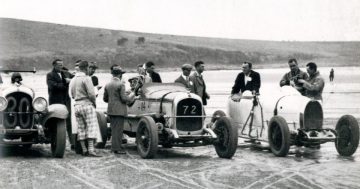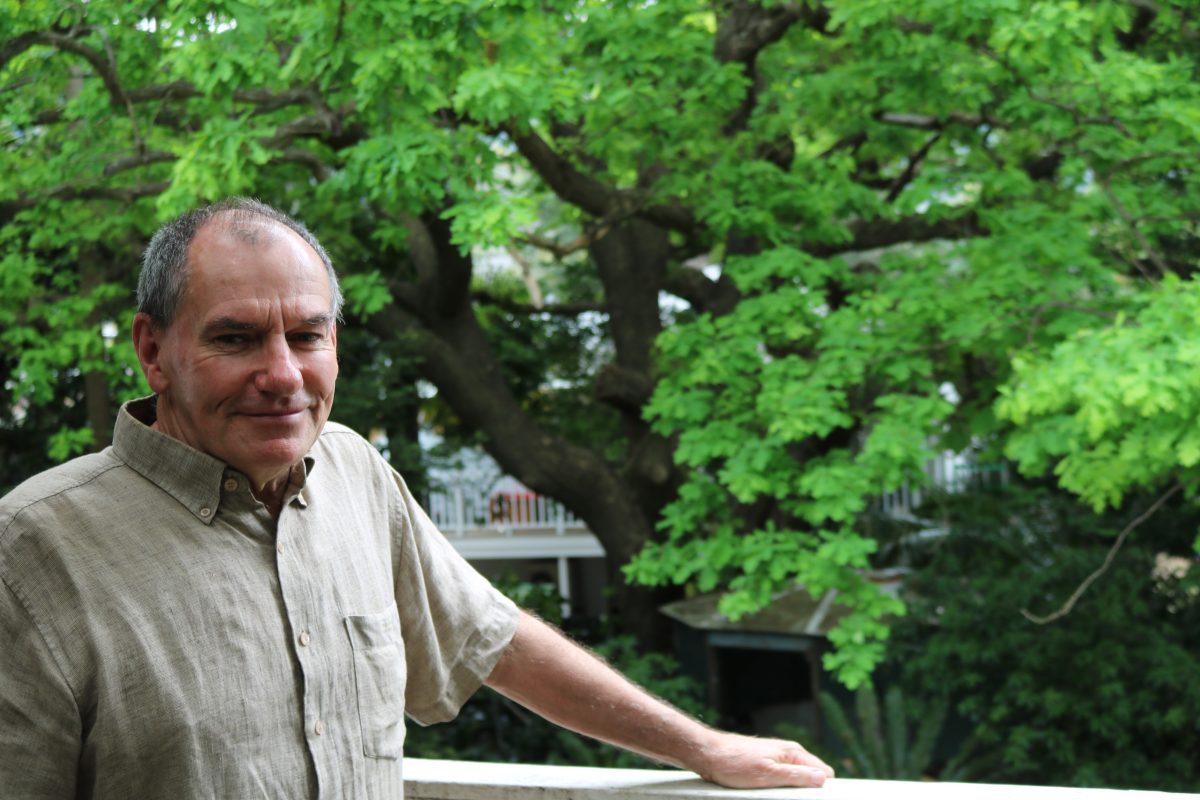
Author and historian Joe Davis at his childhood home in Thirroul. Photo: Jen White.
It’s a delicious irony that Thirroul’s well-known author and historian Joe Davis is a descendant of a First Fleet convict transported to Australia for … stealing a book.
Joe has lived in two neighbouring homes in Thirroul all of his life, apart from a stint in what he fondly refers to as the “gulag” of Narooma.
Best-known for his book on one of Thirroul’s most famous, though short-term residents, D H Lawrence, Joe is a walking, talking history book. His passion for the subject and ability to tell great stories turns a straightforward interview into a meandering, captivating conversation.
Like when he talks about those thieving convicts in the family tree.
“Would you believe that I have eight convicts in my family? Two First Fleeters and two Second Fleeters,” he says.
“And they weren’t the sort of people who stole a loaf of bread, some of them were big-time crooks. One bloke stole enough cutlery from a house to furnish a mansion.
“But the dumbest one, the first one, got done for stealing a book.
“He was a servant for a lawyer and the lawyer sacked him. As he left, he took one of the law books off the shelves and went to the pawnbroker – obviously, books were valuable back then.
“The pawnbroker said, ‘Oh yes, I’d like to buy that, come back in half an hour and I’ll buy that off you; I’ll just check it out’.
“He came back half an hour later and the cops were there, so he got transported.”
It’s stories like these – although focusing on the Illawarra – that Dr Joseph Davis will be writing for Region Illawarra in a weekly history column, starting Sunday 6 October.
Joe was the only child of “very, very unusual parents scarred from the Depression”.
“That’s why I loved school, because the teachers were so boring compared to my parents. I thought, oh, wouldn’t it be great to have someone who was just so boring?” he says.
“My mother had never been anywhere. Didn’t want to go anywhere; she liked hanging out in the garden, sort of a proto-hippy, really. She was born in Thirroul, grew up in Thirroul, stayed in Thirroul.”
His father was a ward of the state, growing up during the Depression in the slums of Sydney’s Surrey Hills.
He left school at 13 and was unemployed and homeless until 1939, when World War II broke out and he enlisted.
“Of all things they did, they taught him to kill people, to be a gunner, to shoot people,” Joe recalls.
“He became a merchant seaman; he saw the world. He’d read more than I had, he could speak better than I could, he could write better than I could.
“His route was basically Sydney, Fremantle, Burma, Rangoon, and then he’d do every port, all the way through the Middle East and down Africa, until you got to Namibia. Our house is called Luderitz, after the last, furthest place he got to in Namibia, called Luderitz.”
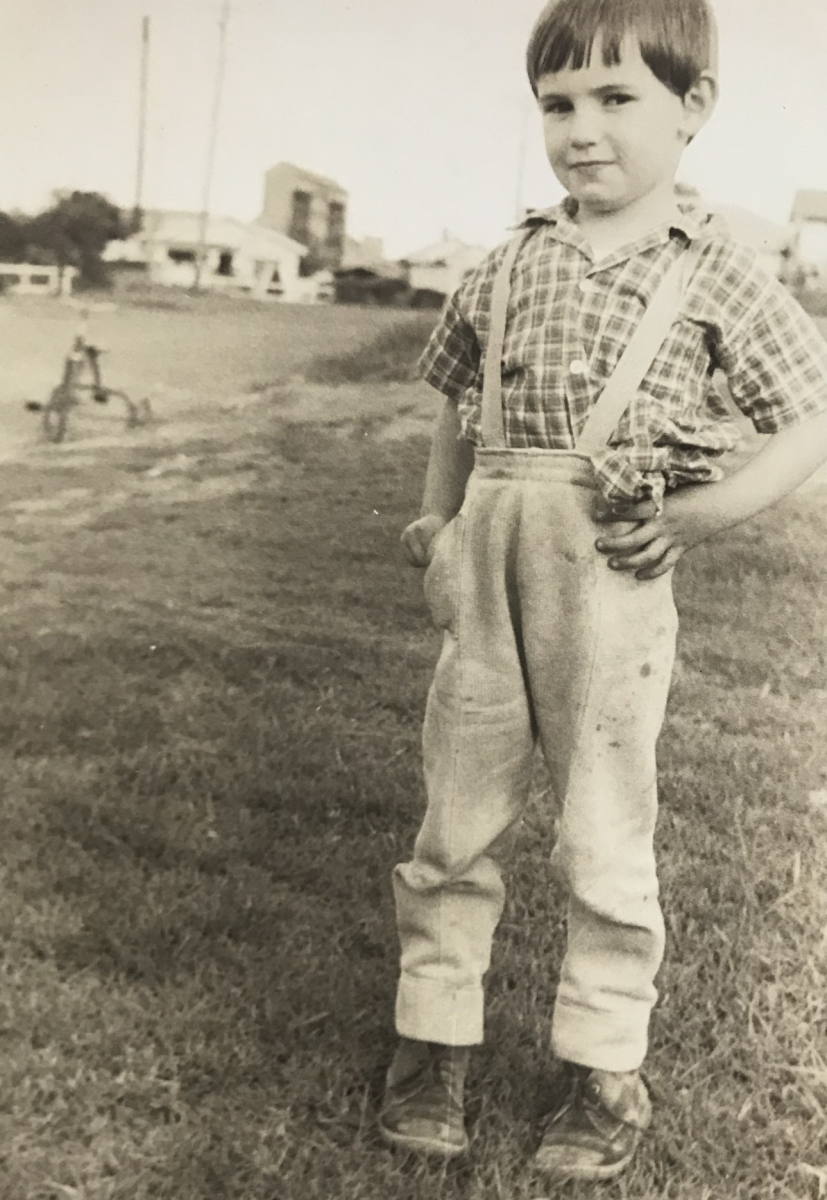
A young Joe in Hewitts Avenue Thirroul, near his home. Photo: Joe Davis.
Not only does the house have a significant name, it’s a story in itself.
“Dad was mad too, absolutely insane. He built this house on his own. He did all the brickwork, the flooring, the tiling – every single bit – the plumbing, the electrical … insane.
“He saw a pattern for this house in an American magazine when he was away sailing and thought, ‘I like that’.
“So he got the magazine, but he called a strike at the wharves and the house plans were in two parts – because of the strike [ships] couldn’t get in for three months with the second edition of the magazine. So he made up half the plans.
“It was a tiny house, only half a house with two bedrooms but I was the only kid so it worked.”
Joe grew up in Luderitz, became school captain of Bulli High School, bought the house next door and became a high school English teacher.
A keen surfer at McCauleys Beach with his mates, Joe first became aware of D H Lawrence when “all these posh people in posh cars” were turning up looking for the Thirroul house which Lawrence had rented for a short period in 1922.
It was during his stay at the holiday house, known as Wyewurk, that he wrote his great Australian novel, Kangaroo, in less than six weeks.
At the time 13-year-old Joe had no idea who the author was – his father’s response to his question failed to enlighten him either: “I can tell you one thing boy, with a name like Wyewurk, an intellectual must have lived there”.
Joe and his mates were sitting on the beach after a surf one day when one of the “posh people” asked if they knew where D H Lawrence had lived.
His innocent response was: “Nah, he doesn’t surf with us”.
Joe has since learned more about Lawrence and his time in Thirroul than almost anyone else. One precis of his 1989 book, D H Lawrence at Thirroul, declares: “This book solves the mystery of why one of the world’s greatest writers went slumming it on the riviera of New South Wales.”
The retired teacher now says he wished he had studied history at university, rather than English: “My academic expertise is pre Shakespearean poetry – not a lot of market for that in Wollongong; no-one’s ever asked me to speak about that.”
Joe topped the state in Year 10 history, which he says was down to sheer luck.
“You had to write in the test about an Asian city, but our teacher had forgotten to teach us about an Asian city,” he says.
“Because my father had been all over the world, I drew the Irrawaddy River going to Rangoon in Burma [now Myanmar]. And in those days, you couldn’t get into Burma, it was a closed country. So none of the people marking would have had the faintest idea about it, they just thought ‘this bloke’s a genius’. Just total luck.”
It’s only fitting that Joe’s first history column for Region Illawarra is a fascinating article linking D H Lawrence and a small plane that took joy flights from nearby Thirroul beach.








